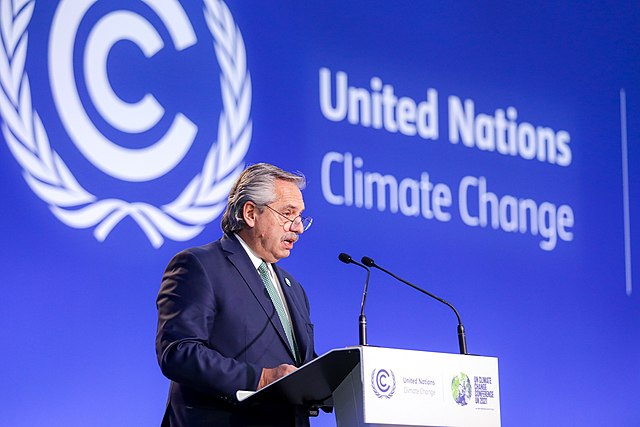Will These Conferences Really Save Our Planet?
As climate change remains one of the biggest and most rapidly increasing problems the world is faced with, the UN Climate Change Conference (COP26) promises a better world.
“I felt like the conference was honestly pretty outstanding with the awareness but I feel as though it really isn’t enough for real change. With the rise of celebrities and ‘influencers’ I feel as though they should contribute and influence the younger generation to take part with help of climate change,” spoke junior Zean Ylaya.
COP26 is the most recent of the yearly UN conferences that started in 1995. Participants in the conference work in hopes of reducing emissions of greenhouse gasses. The conference included the two most emission-high countries, the United States and China, but few statements by either to make sure that emissions would be cut significantly.
“I think it’s an important step towards fixing the problem, but if we aim to end climate change by 2050, it’s nowhere near enough if we want to see a real end,” explains biology teacher Emily Ledford.
With general promises made by the countries at the conference, there are few certainties about the future of climate change.
According to the New York Times, “The United States and China agreed on Wednesday to ‘enhance ambition’ on climate change… in which both countries agreed to do more to cut emissions this decade,” said Lisa Friedman. Little was confirmed by the countries specifically on what they would change, although they promise to emit less. Friedman continues on, explaining, “The agreement, however, did not extract any new pledges from China… to set a limit for how high emissions will rise before peaking.” China’s statement does not differ much from what they have done in previous years, but the countries’ agreements both surround cutting their release of greenhouse gasses as a whole.
There were a few goals reached by the UN, including the cut on oil and gas. “The U.S. and more than 20 other countries agreed to stop financing most new oil and gas projects,” wrote Justin Worland of Time Magazine.
Fewer than 20% of the world’s continent were part of this agreement, but with the U.S. being amongst them will bring a great decrease in these projects releasing emissions. Additionally, “Costa Rica and Denmark formally launched an alliance known as the Beyond Oil and Gas Alliance, which pushes for a transition away from the energy source,” Worland wrote.
“It was a waste of effort even trying to talk about it, they are not going to keep their promises to the people,” spoke freshman Giorgio Hernandez.

